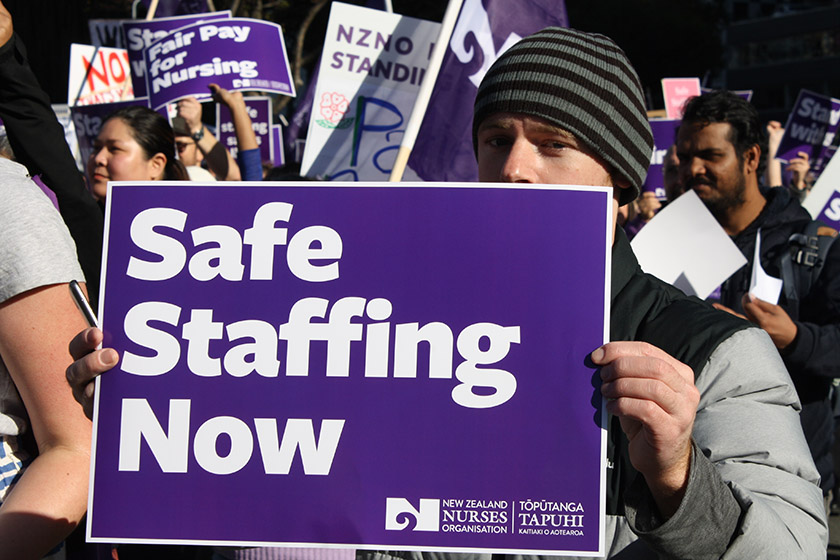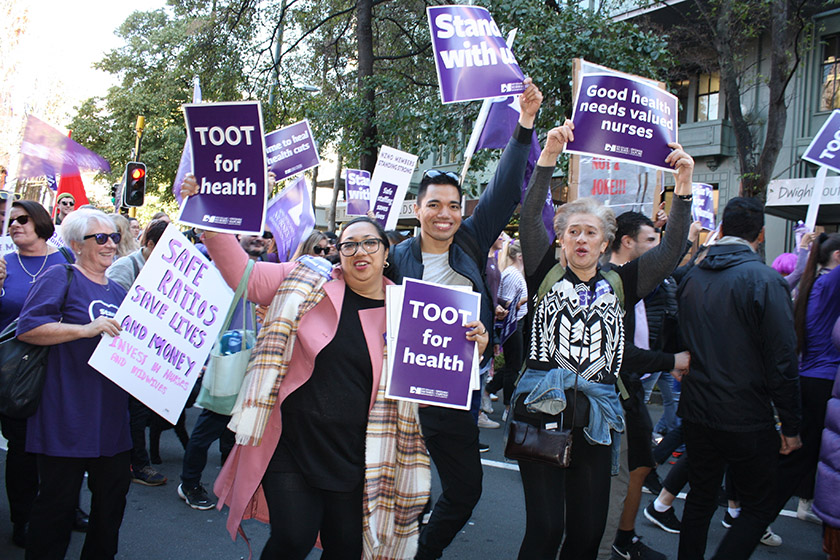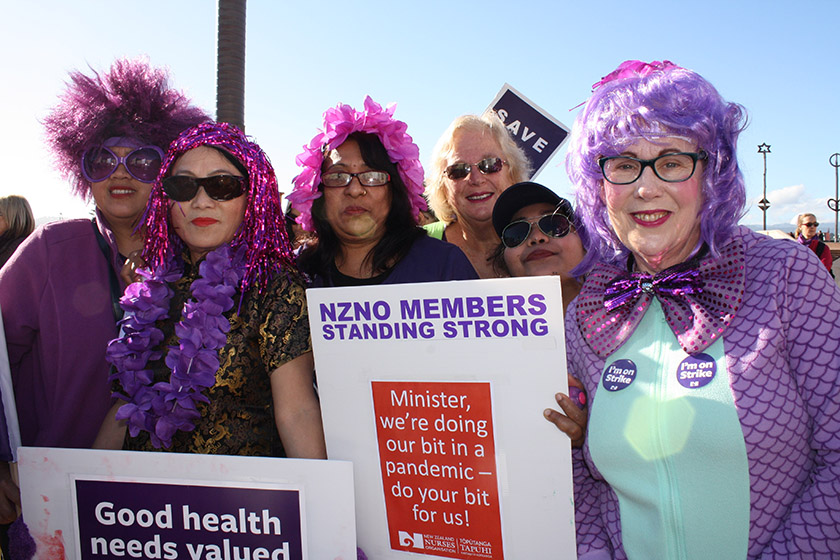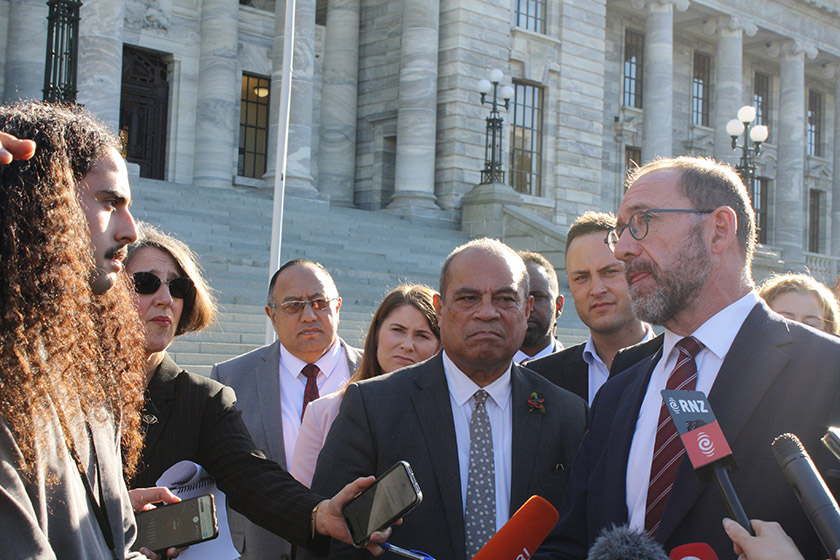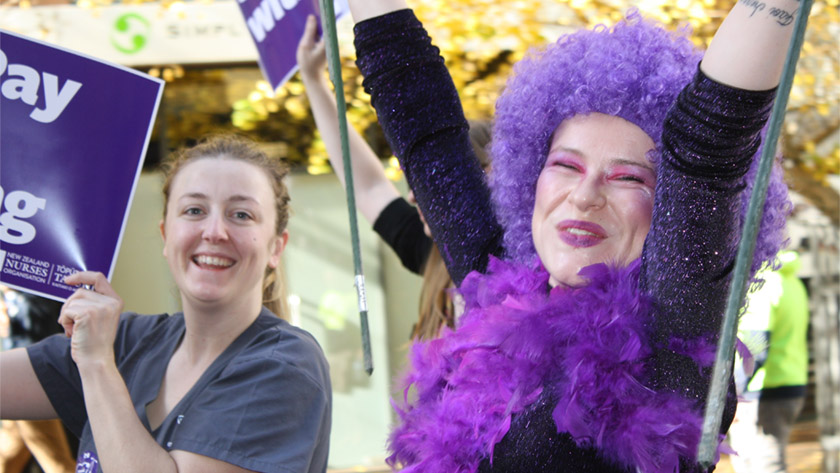NZNO district health board (DHB) members voted by 83 per cent to accept the latest offer in multi-employer collective agreement (MECA) negotiations.
The vote drew the highest turnout of the negotiations with 69 per cent of eligible members having their say over the past week.
Members voted on the Employment Relations Authority-crafted offer, following mediation between NZNO and DHBs.

NZNO lead advocate and industrial adviser David Wait said he was pleased DHBs took the advice of the Authority after mediation last month, and put forward an acceptable offer.
“We have been in negotiations for 15 months, so it is great to receive something that both addresses pay issues and makes important progress towards safe staffing.”
Wait said most of the pay increase came in down payments on an upcoming pay equity settlement: a separate process due for completion by the end of November. The early lump sum payments were substantial, he said.
There was a sense from some nursing members who voted ‘yes’ that there was still room for improvements to pay – but it was perhaps time to settle.
Registered nurse (RN) Chris Hay said she would have preferred more money but after long-running bargaining she was “over it”.
But she said she voted ‘yes’ because she did not think they could get any better at this point.
RN Deb Hendry said at this stage she had just wanted a resolution, so voted yes. The latest offer was indeed an improvement on the previous one, and she did not want the negotiations “dragging on” further.
It comes as the Ministry of Health prepares services, and retrains some nurses to be ICU-prepared, for an expected surge in COVID-19 cases, post-elimination.
Safe staffing measures themselves were key to the latest accepted offer.
Wait said how DHBs responded to safe staffing over the next year would play a major role in the next collective agreement negotiations, “so I encourage them to take this opportunity to do that”.
“There is still a lot to do as we work with the DHBs to implement the changes, and members remain wary of their employers’ promises, so the DHBs have a real opportunity here to begin regaining the trust of their employees.”

NZNO College of Critical Care Nurses chair Tania Mitchell said she was not surprised by the record turnout and strong ratification as there was a “more positive” feeling about the offer, “from a staffing point of view, as well as remuneration.
“I think people are just keen to have an offer accepted and put this behind us, it’s been a long process.”
However, she said it would be “interesting” to see how the safe staffing elements worked for specialist nursing roles such as critical care, which could not easily be filled – particularly with the inexorably growing number of COVID-19 cases in the community. Many nurses felt intimidated and overwhelmed by filling in at ICUs.
“From a critical care point of view, it’s an area that requires specialist skills, experience and knowledge,” Mitchell said. “We know already it’s an area that it’s hard to redeploy staff to, because other nurses don’t have the knowledge and skills required for the role.”
The long-running battle over the agreement saw members hit the streets in their thousands around the nation in June.
It took them all the way to the steps of parliament where they confronted Health Minister Andrew Little.
Wait said he was extremely proud of the way the more-than 32,000 DHB members engaged with the campaign – and how they’d managed consistently to come to a consensus over many months.
The ratified MECA applied to the period August 1, 2020 to October 31, 2022. NZNO would next initiate bargaining late next year
What did it include?
The offer includes a base pay rise of $5800 for all pay scale steps, comprising a pay equity advance of $4000 and general increase of $1800. It includes a $7300 lump sum payment, of which $6000 is a pay equity advance.
Pay equity negotiations were expected to be completed by November 30, 2021, and further raise pay rates, NZNO said in a summary of the offer.
Pay equity negotiations would further lift rates and be dated back to December 31, 2019.
It allows DHBs to be penalised and health services cut back if they are not able to be safely staffed.
Previously NZNO said the staffing element of the offer was “significantly better” with a specific definition of an acute staffing shortage, which could be applied to areas without safe staffing tool care capacity demand management (CCDM).
If shortages can’t be remedied, service range and volumes must be reduced under the offer.
The offer did “strengthen our existing rights”, requiring delegates to be involved in investigating and correcting staff shortages. It also required DHBs to publicly display whether there was an acute staffing shortage at the start of every shift.
DHBs would be obliged to immediately try to fill vacancies identified by the CCDM calculations, by establishing and advertising the positions, without delay. If ratified, NZNO would run training sessions for members on using the new provisions.
